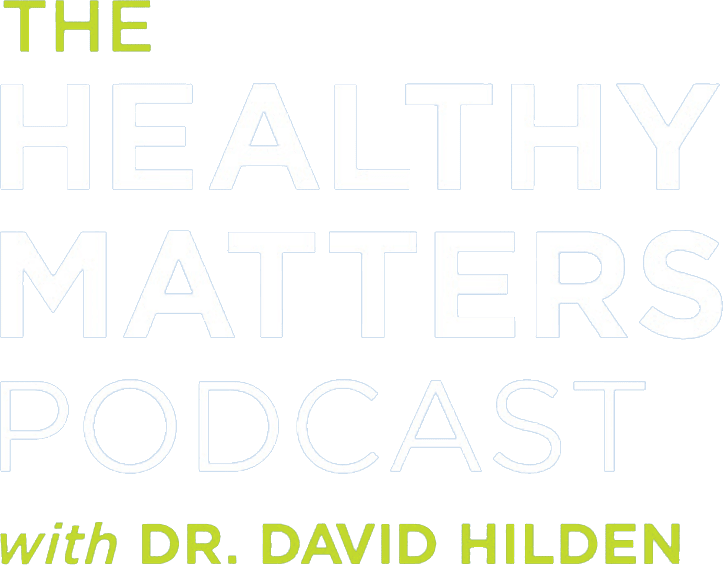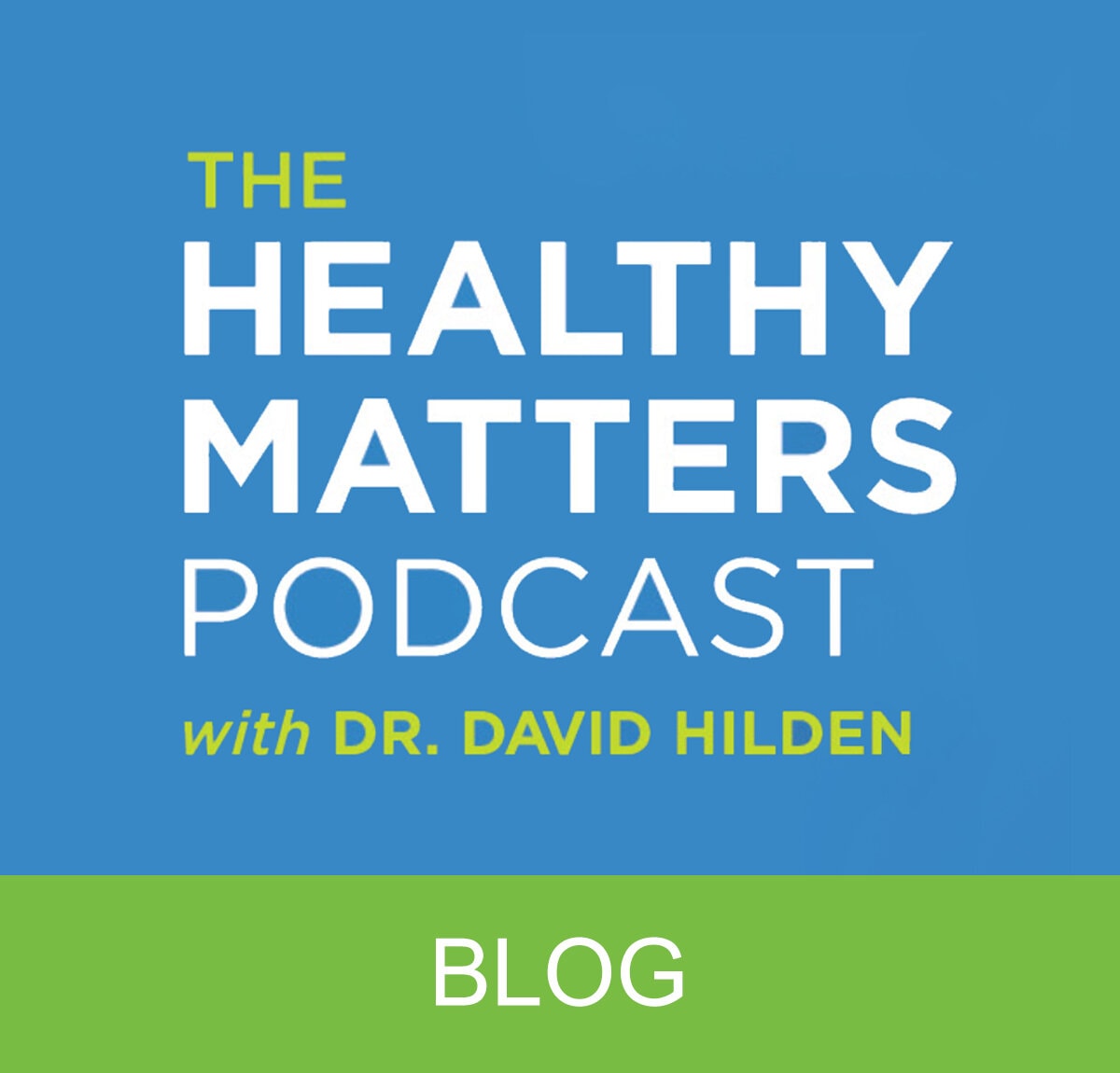Digesting the Topic of Processed Foods
Are your grain-threshing skills getting a little rusty? No worries, my friends! In Episode 2 of Season 2 of the Healthy Matters Podcast we’ll hone our healthy gastronomic choices when we learn about highly processed foods. We are joined once again by Dr. Kate Shafto, triple board-certified physician in internal medicine, pediatrics, and integrative medicine.
There are four basic levels of how food is processed, beginning with the most minimal of processing, (think of simply picking an apple and eating it) to the most processed of foods, (cereal, for example – a bunch of ingredients from a variety of processed sources that has been infused with stuff – perhaps vitamins, minerals and preservatives, mixed, fried or molded and baked and ready-to-eat on store shelves).
“Processing food is something that humans have done for a long time,” said Dr. Shafto. “What’s lacking from those highly processed foods a lot of times are the very nutrients that we need from the food that we eat – and fiber. Those are my top two that are lacking – fiber and micronutrients, vitamins, antioxidants, and minerals.”
Dr. Shafto is a big fan of fiber and explains why we all should be, too. In fact, our entire gastrointestinal tract was made to digest a variety of unprocessed foods, but unfortunately, during processing many nutrients and fiber are removed.
“Fiber is an unsung hero in our health. It is so important and the human body has been very well acquainted with fiber for as long as humans have walked the earth. It only comes from plant foods – you can’t find it in animal foods.”
What is the big deal about fiber – and what exactly happens when you eat it? She explains an amazing way fiber gives our guts more time for other important processes to take place.
“The fibers actually form kind of a film along the inner walls of our intestines so that the nutrients don’t get absorbed right away, so the microbes can do their thing and they can metabolize the different vitamins. hey can process different vitamins and minerals and other nutrients in ways that only our microbiota can do.”
She explained how fiber also slows down the absorption of sugar into the bloodstream, which is very important because humans don’t tolerate quick infusions of sugar very well. Good to know!
So grab a stalk of celery and sink your teeth into tidbits like these and more in Episode 2 of Season 2 of the Healthy Matters Podcast. If you haven’t already, also check out Season 1, Episode 20 of the podcast: Eating through the Ages, where Dr. Kate Shafto talks about how our food supply has changed over the past 100 years and the effects these have had on our diets and our health.
Pediatrics! Where it all begins…
Kids don’t come with a guidebook? In Episode One of Season 2 of the Healthy Matters Podcast we have the next best thing – Dr. Krishnan Subrahmanian, pediatrician at Hennepin Healthcare! We talk about RSV and other viral illnesses, early childhood development, reading and language development, and how to access your child’s pediatrician. (Warning: This is snot an episode for those who get queasy hearing the word “booger.”)
Dr. Krish – as he often is called – was a high school special education teacher before he became a pediatrician.
“The kids were incredible. They were amazing. They inspired me. They made me think, they challenged me. And I honestly loved my job as a special education teacher. My hats and heart go off to all the special education teachers out there. They do incredible work.”
This love of learning spills over into his work as a pediatrician, and Dr. Krish’s interest in brain development – especially at an early age.
“Actually 90 to 95% of brain development – neuronal connections – has happened by the age of five,” he explains. “And it leads us to think, ‘wait a minute, what are we doing in those early years to help support that brain development to get kids off to the best start?’ What this means is that even pre-birth in utero, brain development is starting, and neuronal connections in those first few months and years of life are growing every day.”
Dr. Krish explains how playing with children, talking to children, and singing with children helps form a brain that is more able to learn, more able to grow, and sets them up for success for the rest of their lives.
“There’s a type of interaction called serve and return learning,” he shared. “It’s the kind of thing that you see folks do all the time. ‘Hey, baby, how you doing? How’s it going?’ And then waiting for that little response, that smile or that cue back from the baby. That kind of communication pattern, giving a little bit to the baby, waiting for the return and, and ensuring that we do that repeatedly, really does help form brain connections and can begin right from the very moment that they join your family.”
While Dr. Krish and I talk about ways to relieve nasal congestion, reduce fever, and when to bring your child in to be seen by a physician he also gives this piece of advice for the well-being of children, which is very worthy of sharing:
“The greatest tool and gift we have for little babies and kids is an adult who loves them, is an adult who cares for them, is an adult who’s investing their time and energy. If you can spend yourself, your time, your energy, that will make the biggest difference.”
Wise words indeed. Thanks for listening to Episode One of Season 2 of the Healthy Matters Podcast!
Bonus Episode – A ride-along with Emergency Medical Services
As we wrapped up Season One of the Healthy Matters Podcast, I wanted to share with you a bonus episode – a ride-along with one of our Hennepin EMS ambulance teams. There are many components that make up a robust healthcare network, and oftentimes the caregiving starts with these first responders who you’ll meet on our ride along.
How does it work when someone calls 9-1-1? How much does an ambulance cost? What’s a typical shift like for a paramedic? And how do they cope with the stresses of the job?
With 36 ambulances, 2 paramedics in each, and an average of one call every 6 minutes, these mobile emergency rooms and the teams within them see a lot of action – approximately 90,000 calls a year at Hennepin Healthcare alone!
We take a couple calls with our paramedics, but of course, we won’t get too involved with the incidents themselves out of respect for the individual’s privacy. But you’ll get a unique glimpse into the into the unfiltered reality of the world they see every day, and the incredible professionalism these teams who are always ready to provide state-of the-art prehospital care.

